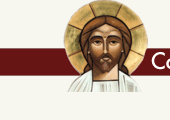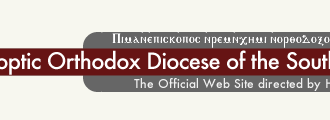The Glorious Joyous Days: Days for Reflection, Restoration, and Reverence
The Pentecost took place fifty days after the Glorious Resurrection. After His Resurrection, the Lord Jesus Christ continued to appear to His disciples throughout the forty days before His Ascension. During those forty days the Lord Jesus Christ spoke about the Kingdom of God and evangelism, "...you shall be witnesses to Me in Jerusalem, and in all Judea, and Samaria, and to the end of the earth" (Acts 1:7-9).
Read More »


